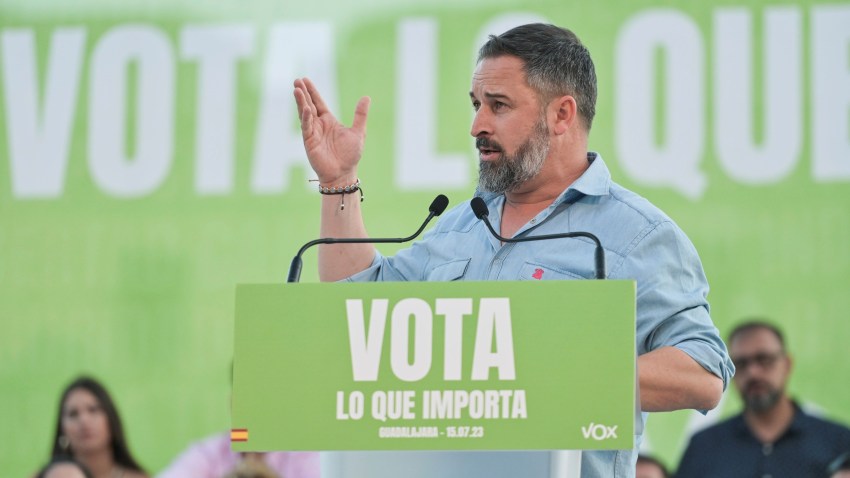On July 23, some 30 million Spaniards will cast their ballots in the country’s most hotly anticipated general election in many years. After his Spanish Socialist Workers Party, or PSOE, suffered major setbacks in regional elections in May, Spanish Prime Minister Pedro Sanchez shocked the country by calling for snap elections. But a week ahead of the voting, his gamble appears unlikely to succeed.
If the opinion polls are to be believed, the right-wing Popular Party, or PP, is poised for a victory, but one that will leave it far short of an overall majority. As a result, in order to return to power, the PP will have to form a coalition government with the Vox party, their pugnacious rivals on the far right. Barring a major surprise at the polls, then, Spain will follow the recent examples of Italy and Finland, becoming the latest European Union member state to vote the far right into government, whether as a coalition leader or junior partner.
Vox’s rise has been largely shaped by the PP’s own history and evolution from the disoriented dregs of the Franco dictatorship to the mainstream right-wing alternative to PSOE. After the transition to democracy in the late 1970s, Spain implemented an ambitious program of modernization and liberalization, accelerated by EU membership in 1986. After years in the political wilderness, the PP finally entered government between 1996 and 2004, putting a brake on 15 years of progressive reform by trenchantly opposing, among other measures, enhanced regional language rights and the official recognition of gay relationships. The party returned to office again in 2011, but by then Spanish society had moved on, having already liberalized abortion access and legalized same-sex marriage. Seeing little electoral advantage in holding out on its socially conservative stances, the PP ceded significant ground on so-called culture war issues, particularly LGBTQ and women’s rights.

